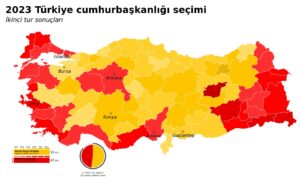The sea does not get dirty with saliva...

The sea does not get dirty with saliva…
Kurmanci. Zazakî/kirdkî.
| Kurmanci | Zazaki/Kirdki |
|---|---|
 Kûçik Kûçik |
Kutik |
 Pisîk Pisîk |
Pîsing |
 Ga Ga |
Ga |
 Mî Mî |
Mî/mî(eşma) |
 Bizin Bizin |
Biz |
 Teyr Teyr |
Têyr |
 Kusî Kusî |
Kesa |
 Masî Masî |
Mase |
 Perperok Perperok |
Sisperik |
 Morî Morî |
Morcele |
 Beraz Beraz |
Xaz |
 Mar Mar |
Mar |
 Dest Dest |
Dest |
 çepik çepik |
Cepik |
 çav çav |
Çim |
 guh guh |
Goş/gueş |
 Ziman Ziman |
Ziwan |
 Lêv Lêv |
Lew |
 Gustîlk Gustîlk |
Gîstone |
| Didan | Dindon |
| Buxwe | Bu |
| Xwendin | Wendiş |
| Rind | Rind |
| Sor | Sur |
| Zer | Zer |
| Govend | Guvend |
| Nenok | Nengu |
| Av | Aw |
| Nan | Non |
| Ezman | Asmen |
| Star | Astar |
The Kurdish language, with its historical depth, richness, and colorful diversity, has proven itself and will continue to do so. Kurdish Kurmanji and Kurdish Zazaki, as well as Zazaki Hewrami and Kelhorî, are both « distinct » and inseparably linked to each other.
For example, Kelhori Kurds say, « We are the true Kurds, » and Zazaki speakers say, « We are the true Kurds. » As you can see, the similarities between the language spoken in Kermanshah and Hamadan and the language spoken in Zazaki are filled with indiscernible etymological realities.
As shown in the table above, Zazaki and Kurmanji have undergone modifications over time due to social and political communication reasons, even though they originate from the same word roots. This difference does not imply a difference in language but is caused by changes in the « suffixes » of these words. Thus, contrary to what is said, it is by no means about two nations and two different languages.
Etymology is a discipline that can be considered the key to words or even the atom of language. It is a serious discipline that can distinguish humorous or superficial approaches to philology by analyzing their molecules. It is the foundation of a sound and objective science and should be learned and transmitted by objective scholars.
Not everyone can be a philologist simply because they speak or write a language. Knowing a language and knowing its etymology are not the same thing, and it is not within everyone’s reach to claim it. Philology requires a great deal of effort, and if you pave your way with selfishness, that path will become dirty and difficult, turning into a dead end.
Moreover, the difference between Zazaki and Kurmanji is like the difference between « two drops of rain or two snowflakes, » where the only difference between the two drops lies in their falling speed, and there is no real difference between these speeds.
Tarî Hola – Ma’z Êst Analysis

SUBSCRIBE TO OUR NEWSLETTER !


